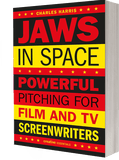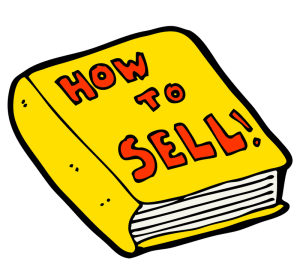Yesterday evening ALLi (Alliance of Independent Authors) organised a very enlightening meeting with film director and writer Charles Harris on the thorny topic of how to sell your story.

He was referring specifically to the film industry of course, where busy producers expect writers looking for a commission to grab their attention in one sentence, or preferably one phrase, as in ‘Jaws in Space’, which is apparently how the writers sold the idea of the film that turned into Alien, and the title of Harris’ latest book.
Of course if you are an author, and specifically an indie, you will not necessarily be verbally pitching a story in order to get a commission. But what you will be doing is trying to grab readers’ attentions on online retail sites like Amazon, so the same principle applies to your blurb.
In my family history workshops I encourage participants to write a blurb for their book there and then, and then to read them out to the rest of us for our comments: did those few sentences make you want to read the book?
It’s fiendishly hard as we all know. But there’s another thing: if like me you get some way into your story and think to yourself why did I start to write this book in the first place? it helps if at some point you have already written down the answer, in other words what it was that fired you up in the first place, which is to say, the blurb. The blurb can change, it undoubtedly will, and that doesn’t matter. But as Charles mentioned last night for all writers when it comes to pitching an idea, the most important person you should be targetting is yourself.
It can also be a useful unblocker, when you feel yourself grinding to a halt, to take a break and write down, in no more than three sentences, the essence of the story you found so exciting all that time ago.
Thanks to Charles Harris for the talk, to Helena Halme for organising it, and to Waterstone’s Piccadilly for providing the premises (and a few bottles of wine).
If you are interesting in attending meetings like this then it’s worth joining ALLi (click on the logo on the right).
Patsy Trench, London
November 2016


